He continued, “We have memorial sites that remind us where we have been. Keeping memory of those who have died is paramount in the process of reconciliation and healing.”
Rwanda is also a construction site, the Nairobi-based Jesuit Priest said, because the country “will take a long time to build reconciliation and forgiveness in the hearts of the people.”
Making reference to the role of the Gacaca courts in the process of reconciliation, a system of community justice in Rwanda following the 1994 genocide, he said, “Many hearts were healed and even people who had never spoken to one another, began to speak.”
The 256-page book begins from personal childhood memories (Chapter I) on to the historical context before the Genocide of 1994 (Chapter II). This is followed by the dramatic survival during the genocide (Chapter III) and goes on to the fourth chapter that contains spiritual and theological reflections on forgiveness and hope.
Reflections on the Theological formation of Priests, and the identity of a Priest constitute the fifth and sixth chapters respectively.
(Story continues below)
Chapter VII resumes the proper autobiographic style of the “new life” of Fr. Uwineza in the United States in which he relates some of the memorable events of his Priestly ministry, including his speech during a United Nations meeting in New York and the International Conference in Rwanda.
A special chapter is dedicated to his “New Parents”, the couple of John and Anne Maloy, an experience that has marked his life until the present day.
The final chapter of the book, chapter nine and the Epilogue, speaks about the future and focuses on the vocation of a Theologian in post-genocide Rwanda.
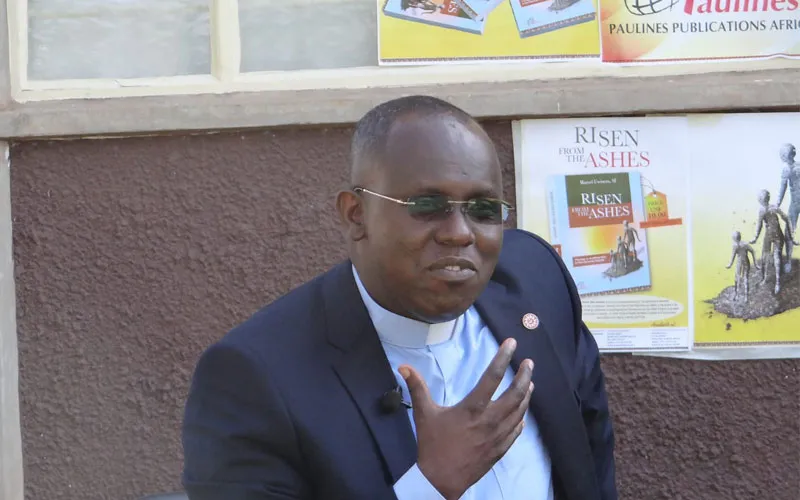 Credit: Sr. Olga Massango
Credit: Sr. Olga Massango
Speaking during the January 13 book launch, the Jesuit Priest highlighted the importance of forgiveness following his encounter with the person who killed his siblings.
“Forgiveness really means many things, but for me it's a miracle. In the language of some of the scholars, is really doing the unimaginable,” Fr. Uwineza said, and added, “Forgiveness here may really entail a decision to decide to remember the wrong or the injury differently. Or at the same time, really deciding not to be a prisoner of the past.”
“When you are still unable to forgo or to let go, you too are a prisoner. And mind you, this is a process, so it's not the same for everyone,” he said.
Making reference to his personal experience, he said he drew inspiration from the spiritual exercises of St. Ignatius of Loyola, the founder of the Jesuits, to be able to forgive.
In 2003, after his years of Jesuit Novitiate, Fr. Uwineza was commissioned to further his studies abroad and decided, before leaving, to return to his village to pray at the tombs of his relatives.
“Providentially, I met the man who killed my siblings and exhumed the remains of my father. Now, having been set free, it was now in a sense, a golden opportunity,” he recounted during the book launch.
The Jesuit Priest continued, “I met him at the graves of my parents and my siblings. He had been released from jail; released by the government but not yet released by my heart.”
“When I met him there, he knelt, and then he looked at me. He said, Marcel, you know what I did? Do you have space in your heart to forgive me,” he recalled, and added, “Mind you, at that moment I was wondering whether he meant it. Am I safe? It sounded like a movie with a really mixed reaction.”
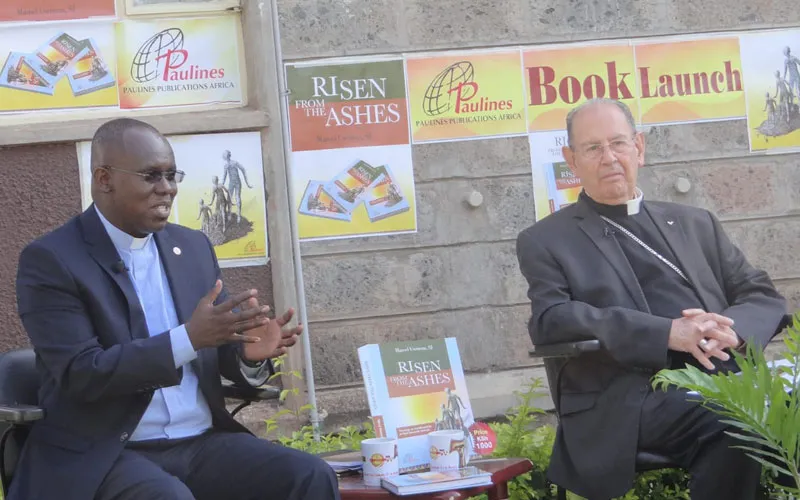 Credit: Sr. Olga Massango
Credit: Sr. Olga Massango
Fr. Uwineza said he was “invaded by something higher than him. It's something we can't forgive on our own. There is a decision to make, but we're empowered by God.”
“I asked him to rise, then we embraced each other. At that moment, I felt like the chains had broken away from my leg. Like I too had been in prison. Now I was set free,” he recounted.
He added, “The Society of Jesus had given me some holiday allowance, so I took him to a nearby pub. We shared a drink and we were shedding tears.”
“Forgiveness sets you free. It's not an event, it's a process, so my experience may not be the experience of everyone, but I hope this inspires couples, often struggling in families, kids who can't forgive their parents, employees who can't forgive their employers. If by God's grace I was able to get to this level, there are other things we can let go,” he said during the January 13 event.
Also speaking during the book launch, Bishop Rodrigo Mejía Saldarriaga said the new book “is an original way of writing theology as an autobiography, something that is also at the origin of the Society of Jesus, the Jesuits.”
“The book of Father Uwineza, therefore, is not a novel but a real work of narrative theology, as late and beloved professor Laurenti Magesa explains in the Preface, perhaps the last writing of his life,” Bishop Mejia said in reference to the book that was published by the Nairobi-based Pauline Publications Africa.
The Vicar Apostolic emeritus of Soddo in Ethiopia further said, “The Father Marcel’s book was written honestly according to his own experience, his own point of view, his own sufferings in itself, and the value of an autobiography.”
“For Father Uwineza, there is a clear conviction that Rwanda, called in the past ‘the star of evangelization in Africa’, needs to be evangelized anew and differently,” Bishop Mejia said.
Making reference to the African Theologian, Emmanuel Katongole, the 84-year-old Bishop who retired in January 2014 said, “Christianity made little difference in Rwanda. Christianity seemed little more than an add-on, an inconsequential relish that did not radically affect people’s so-called natural identities nor the goals or purposes they pursued…This failure calls for a transformation of mind…Christianity is meant to shape a new identity within us by creating a new sense of ‘we’ – a new community that defies our usual categories of anthropology.”
“A transformation of minds implies the evangelization of the entire culture of a people, an agenda that may seem mission impossible for many. However, such is the main agenda, not only for Rwanda but for all cultures in our contemporary society,” he said.
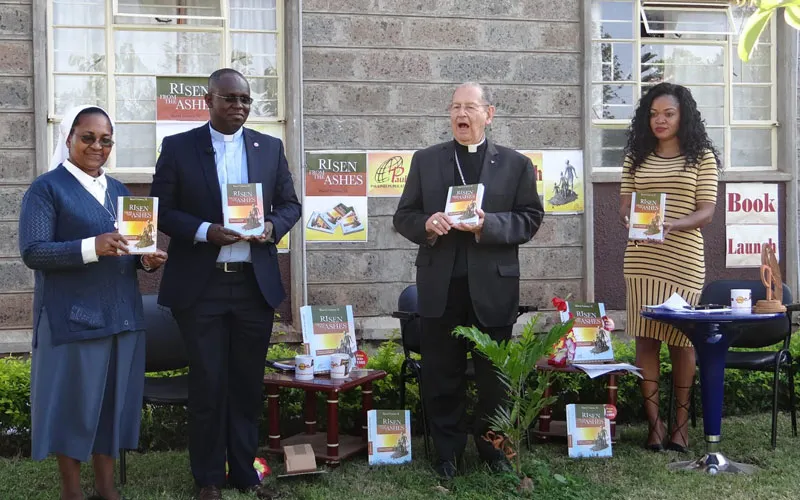 Credit: Sr. Olga Massango
Credit: Sr. Olga Massango
The Nairobi-based Colombian-born Jesuit Bishop added, “The proposal of Father Uwineza, therefore, rejoins the ‘signs of the times’ for the life and mission of the Catholic Church today.”
On her part, Sr. Olga Massango who heads the marketing department of Paulines Publications Africa said the new book “is a blessing for the Church in Africa”.
“This book will help us in our learning of the reconciliation journey Father Marcel has gifted us,” Sr. Massango said.
The member of the Daughters of St. Paul said copies of the new book have been dispatched to several African countries.
The book that goes for US$10.00 is available at Pauline bookshops in Nairobi and Kisumu and in soft copy at www.paulinesafrica.org.
Jude Atemanke is a Cameroonian journalist with a passion for Catholic Church communication. He holds a Bachelor’s Degree in Journalism and Mass Communication from the University of Buea in Cameroon. Currently, Jude serves as a journalist for ACI Africa.
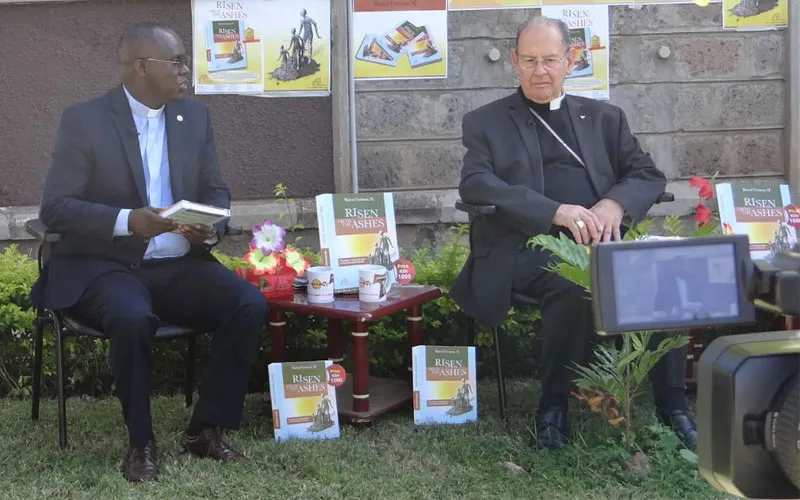 Credit: Sr. Olga Massango
Credit: Sr. Olga Massango


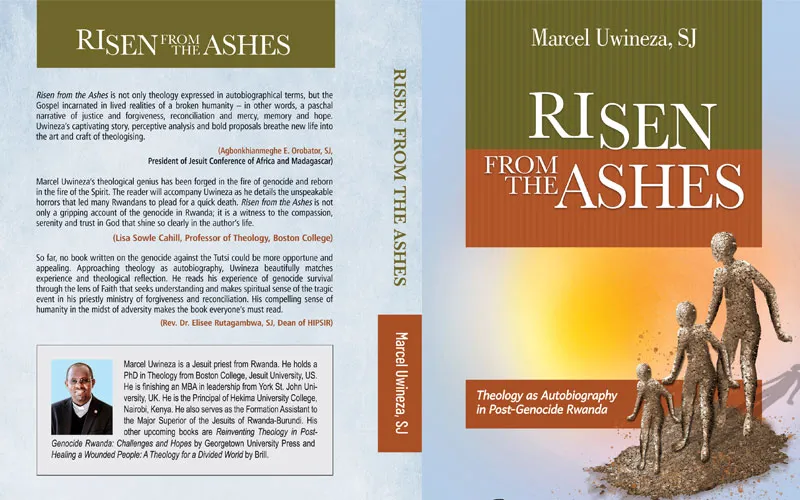
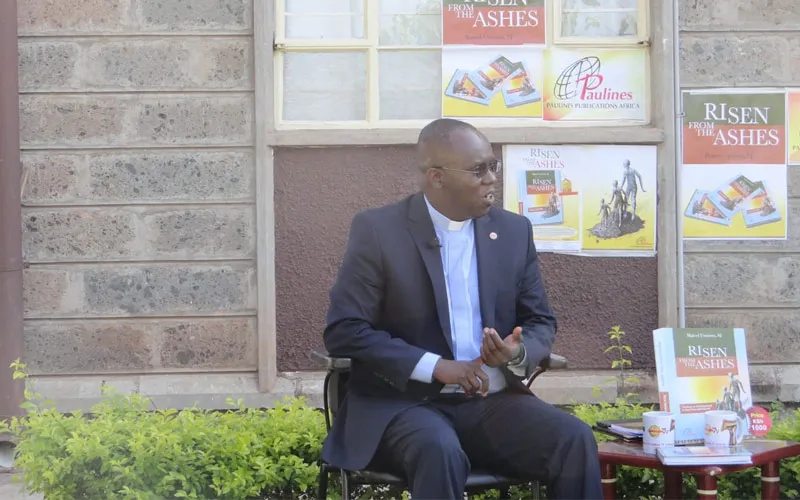 Credit: Sr. Olga Massango
Credit: Sr. Olga Massango
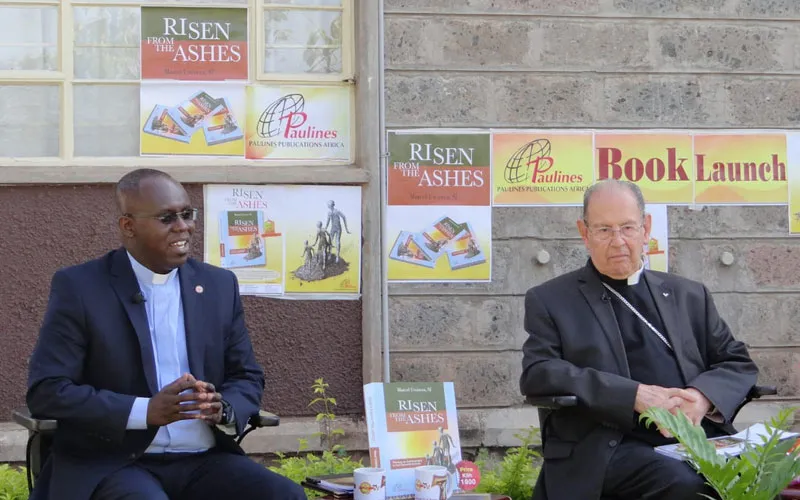 Credit: Sr. Olga Massango
Credit: Sr. Olga Massango Credit: Sr. Olga Massango
Credit: Sr. Olga Massango Credit: Sr. Olga Massango
Credit: Sr. Olga Massango Credit: Sr. Olga Massango
Credit: Sr. Olga Massango


